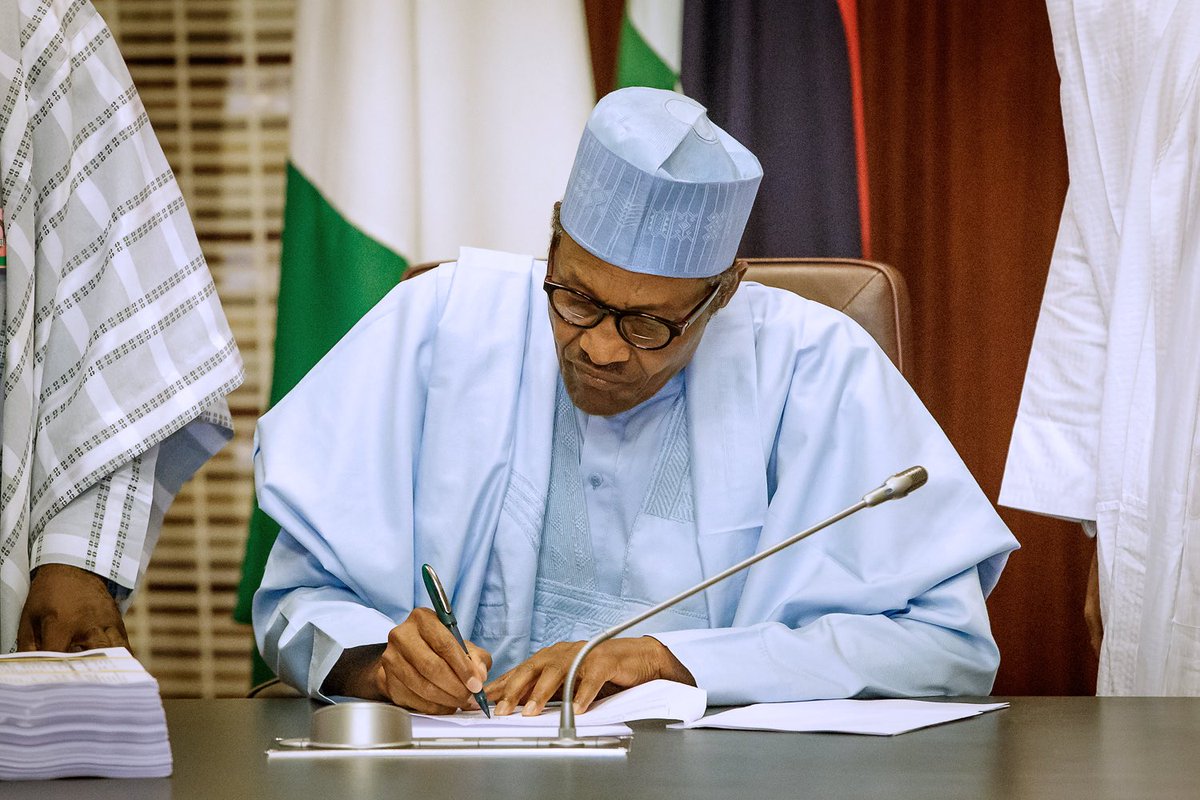Romanus Ugwu, Abuja
Miffed by the disturbing state of insecurity in the country, President Muhammadu Buhari has assigned additional responsibility to the Department of State Services (DSS) to provide enhanced training for middle and top-level managers of security, para-military and law enforcement agencies within and outside the country.
The service’s spokesperson, Peter Afunanya, made the disclosure during the formal unveiling of the 2019 National Institute for Security Studies Act at the DSS headquarters in Abuja yesterday, adding that among other things, the secret service will provide strategic and critical security training for key public officials.
He further noted it is in addition to an enhanced focus terrorism, insurgency, subversion, espionage and sabotage, all of which are basic threats of internal security, adding that the additional powers were contained in the 2019 National Institute for Security Studies Act.
He said the development followed the painstaking efforts of the DSS Director General, Yusuf Bichi, to advance the course of the intelligence organisation.
According to him, the institute has now been brought at par with the prestigious National Institute for Policy and Strategic Studies (NIPSS), National Defence College (NDC) as well as similar global institutions.
He maintained that the Service would continue to enhance its mandate as a lead research organisation into types, trends, patterns, methodology and typologies of criminal behaviour, psycho-analysis among other tendencies threatening national security.
“Contribute uniquely and viably to the promotion of interservice, inter-agency and international cooperation, collaboration and harmony among intelligence, security and law enforcement agencies locally and globally in order to achieve national security, regional and global peace.
“Serve as critical centre for research and dialogue where distinguished academics, policy initiators and implementers meet to cross-fertilize ideas on national and global security issues. Add critical balance and objectivity by providing timely, empirical research and contextual analysis of relevant security issues to policy makers, area specialists, advocacy groups, and the media.
“The Institute shall have power to enter into collaborative ventures, affiliate with the establish linkages with other institutions within or outside Nigeria for the purpose of building capacity. Award certificates on completion of courses, which shall authorise a participant, upon successful completion of the program, to use the designated title of ‘Fellow of Security Institute’. Affiliate with credible and relevant universities on programs leading to the award of Masters and Ph.D degrees to qualified participants,” he said.

